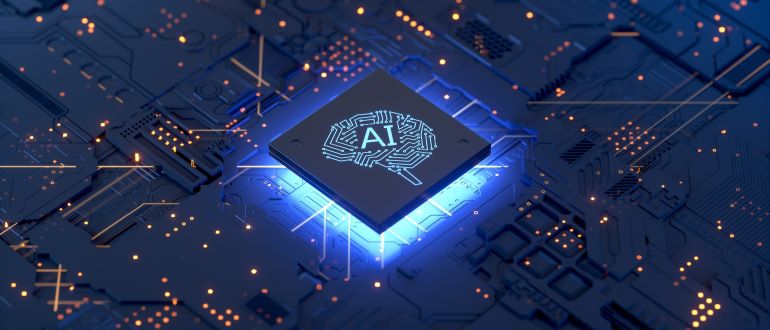
Global financial services firm Morgan Stanley expects AI PCs will account for 64% of the overall PC market by 2028, noting the announcement last week by Microsoft of the new Copilot+ category of computers and the rapid adoption of the new architecture by the largest PC makers.
The commercial adopters will initially drive the growth of AI PCs, given that the systems are being promoted as productivity tools, Morgan Stanley said in its report, according to Seeking Alpha. There also are other factors involved, including the large number of PCs businesses brought into the fold during the COVID-19 pandemic – the commercial PC installed base is 13% larger than pre-pandemic levels – and an initial price of about $1,000, according to the Wall Street giant.
At the same time, organizations have to wrestle with the winding down of Windows 10, according to the report. All this will bolster a sagging global PC market that has seen sales slide over the past few years. Analysts with Canalys Research said they expect 267 million PCs will ship this year – an 8% year-over-year jump – with AI PCs fueling the growth.
“The impact of AI on the PC industry will be profound, with leading players across OEMs, processor manufacturers, and operating system providers focused on delivering new AI-capable models in 2024,” Canalys analyst Ben Yeh wrote in a report. “These initiatives will bolster refresh demand, particularly in the commercial sector. The total shipment share of AI-capable PCs is expected to be about 19% in 2024.”
Morgan Stanley sees AI PC adoption accelerating the in the coming years, with the devices accounting for 2% of systems sold in 2024 and 16% next year before rushing to 64% in 2028.
Bringing AI onto the Device
Morgan Stanley’s report came amid a flurry of announcements for platforms and components that will help drive AI PC adoption. That included Microsoft’s new Copilot+ category, which includes not only a CPU and GPU, but also Qualcomm’s Arm-based Snapdragon X Elite and Snapdragon X Plus neural processing units (NPUs), which can deliver up to 45 trillion operations per second (TOPS), a performance metric used for AI neural networks.
“This means, you can run multiple AI apps at the same time without taking hits to the system performance or battery life – a breakthrough that enables developers to run AI directly on the laptop, instead of the cloud,” Rami Husseini, director of product management at Qualcomm, wrote in a blog post.
The ability to run AI workloads on devices rather than in the cloud was a central theme at the Dell Technologies World 2024 show last week in Las Vegas. CEO Michael Dell and other company executives argued that bringing AI workloads on premises rather than sending the data to public clouds to be processed will reduce latency, save money and ensure data security and sovereignty. During his keynote, Michael Dell noted recent reports that found AI inferencing for large language models (LLMs) can be 75% more cost-effective on-prem than on a public cloud.
Also, 83% of enterprise CIOs plan to repatriate some of the workloads from the public cloud this year.
“This is driven by two things: Inference and data gravity. You want to bring AI to your data, not the other way around,” he said. “You don’t want to bring all your data to a public, centralized cloud service. You get locked in, and as your data grows and you want to put it to work, it gets harder and it gets more expensive.”
The shift toward AI on local devices will help drive adoption of AI PCs, according to Morgan Stanley, noting that 75% of CIOs in the United States and Europe are evaluating or plan to evaluate AI PCs.
Dell Intros Five New AI PCs
At the show, Dell introduced five new PCs based on the Windows 11-based Microsoft Copilot+ model – two Latitude systems, two Inspiron PCs, and the XPS 13. Michael Dell called AI PCs the foundation of computer inferencing at the edge and workforce productivity.
Microsoft, in introducing the Copilot+ model, outlined such features as Recall for more easily finding and remembering what the user has seen on their PC, Cocreator for generating and refining AI images in near real-time and Captions, which translates audio from more than 40 languages into English.
In addition, such Adobe applications like Photoshop, Lightroom and Express are available now on Copilot+ PCs and Illustrator, Premiere Pro and others are coming this summer.
“Over the past year, we have seen an incredible pace of innovation of AI in the cloud, with Copilot allowing us to do things that we never dreamed possible,” Yusuf Mehdi, executive vice president and consumer chief marketing officer at Microsoft, wrote in a blog post. “Now, we begin a new chapter with AI innovation on the device. We have completely reimagined the entirety of the PC – from silicon to the operating system, the application layer to the cloud – with AI at the center, marking the most significant change to the Windows platform in decades.”
Dell isn’t the only PC maker rolling out Copilot+ systems. Others include HP, Acer, Samsung, Asus and Lenovo, and Microsoft has a new Surface system based on the Copilot+ architecture.


